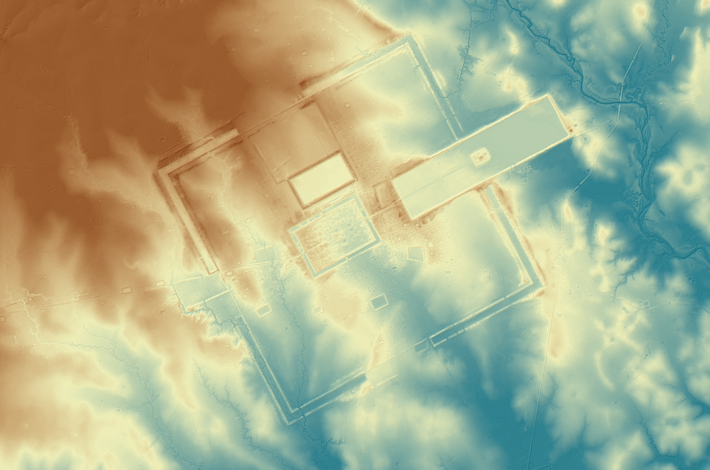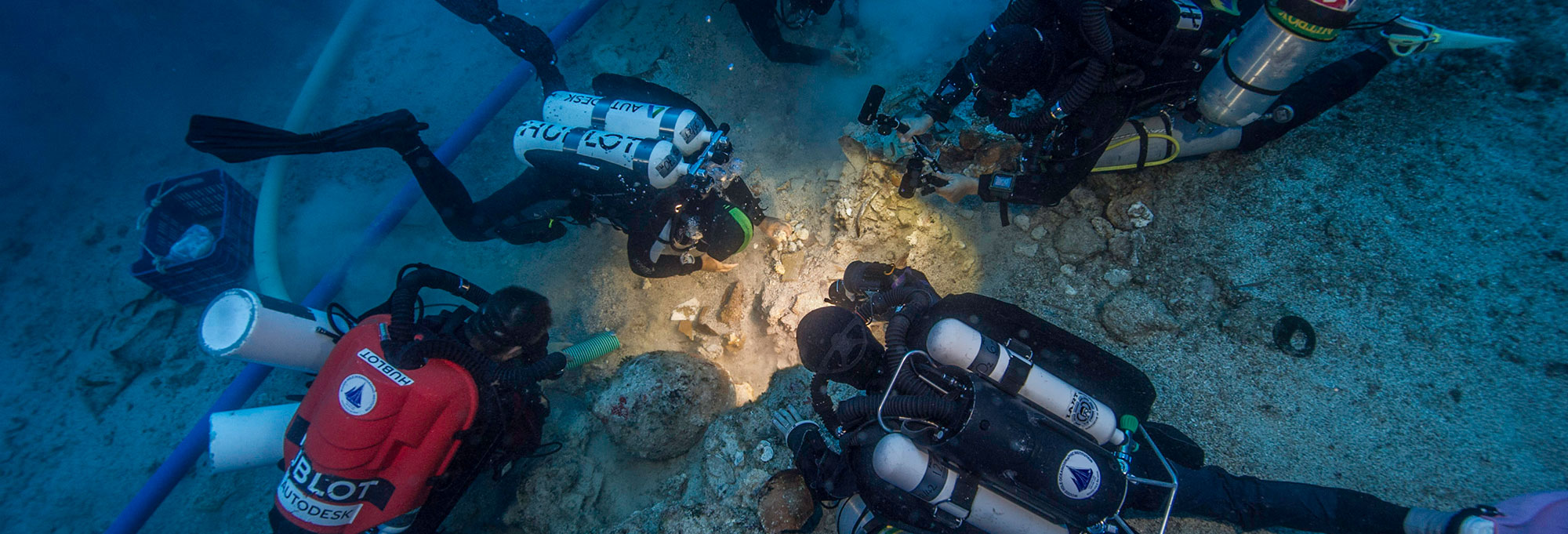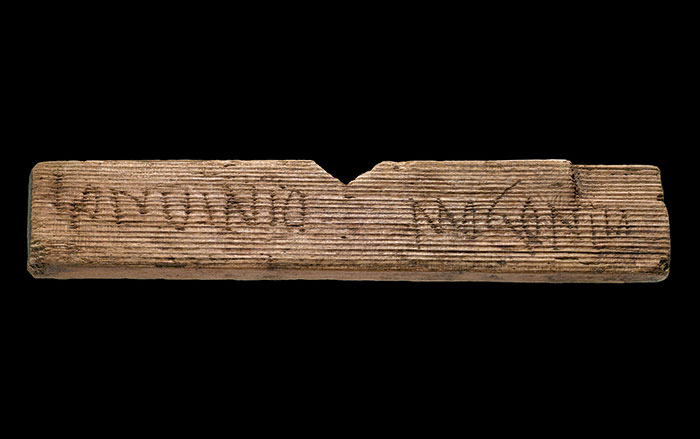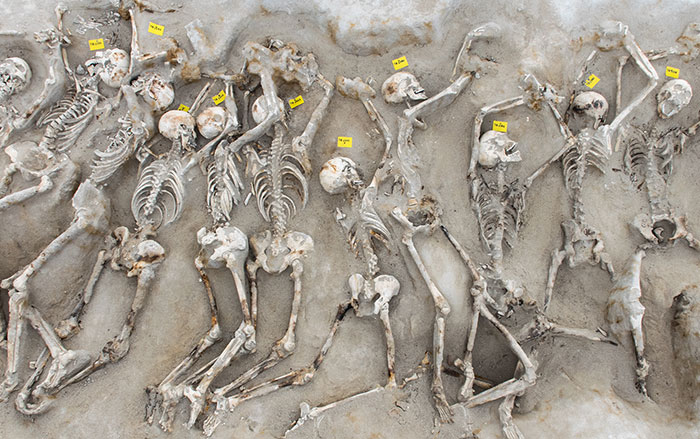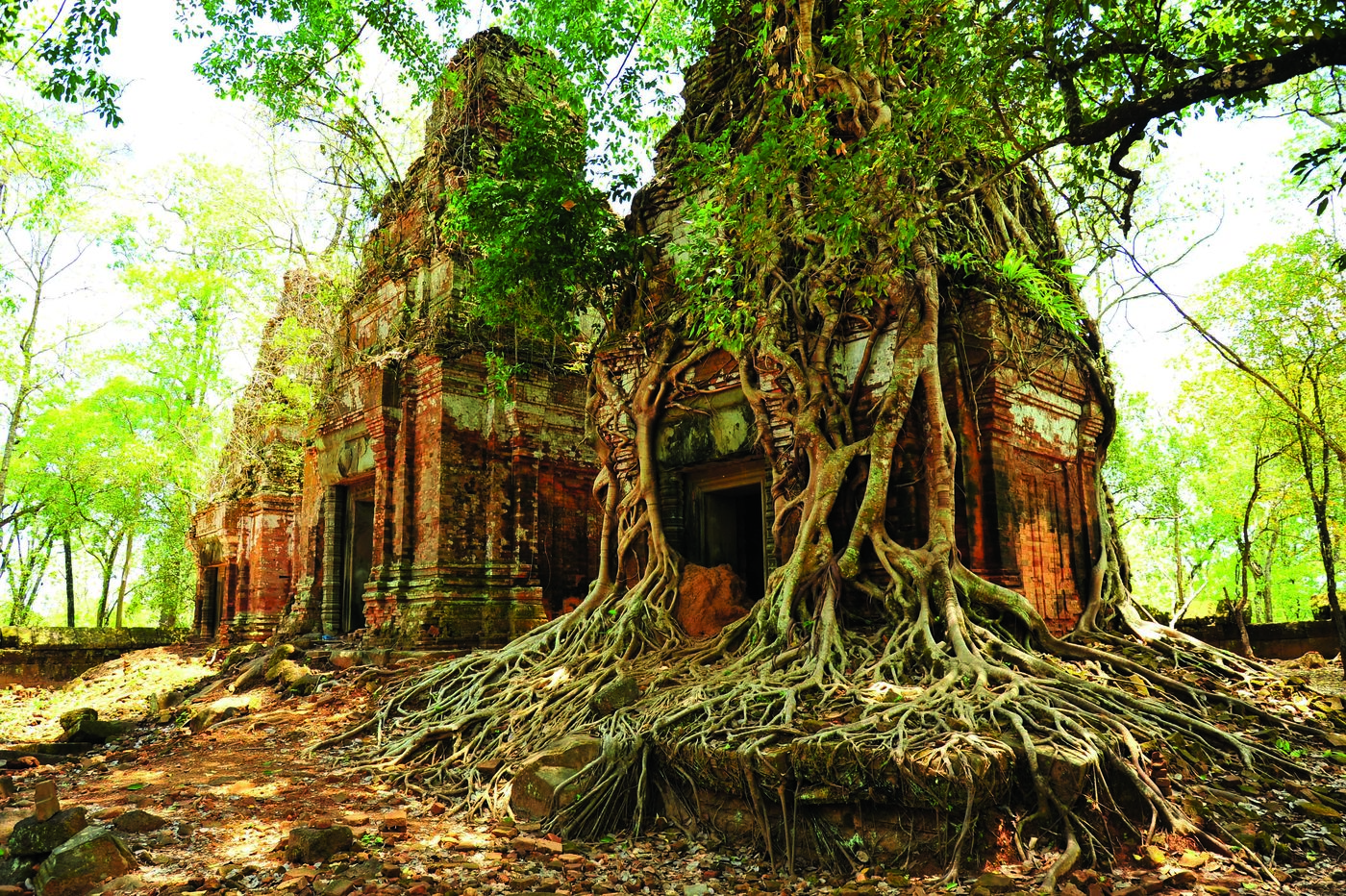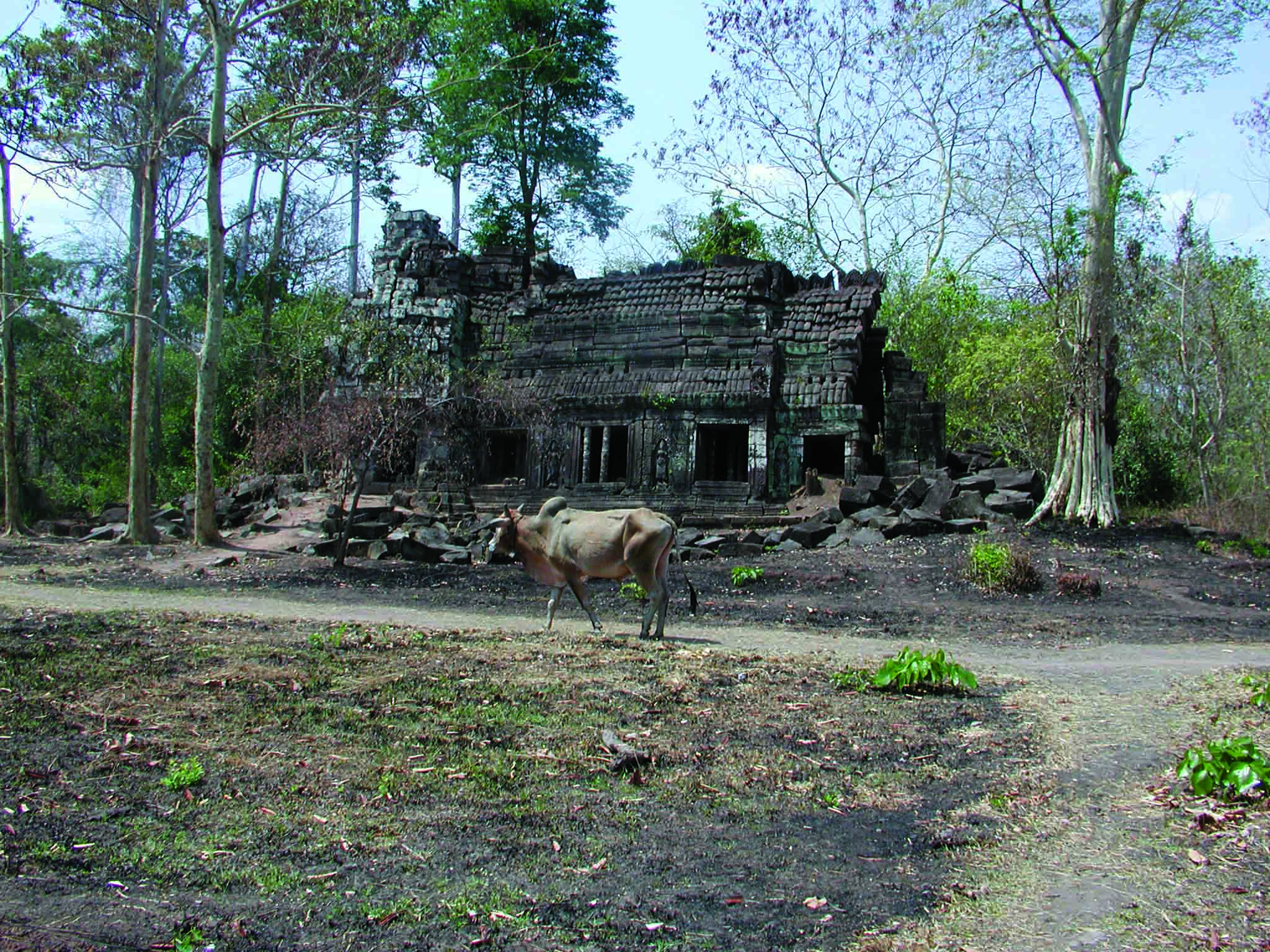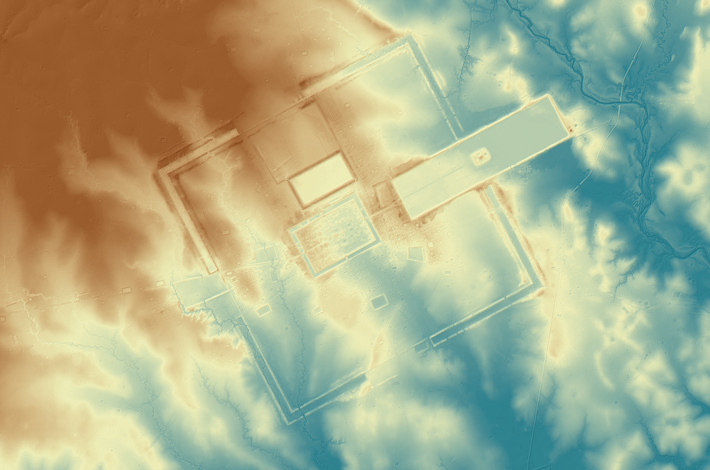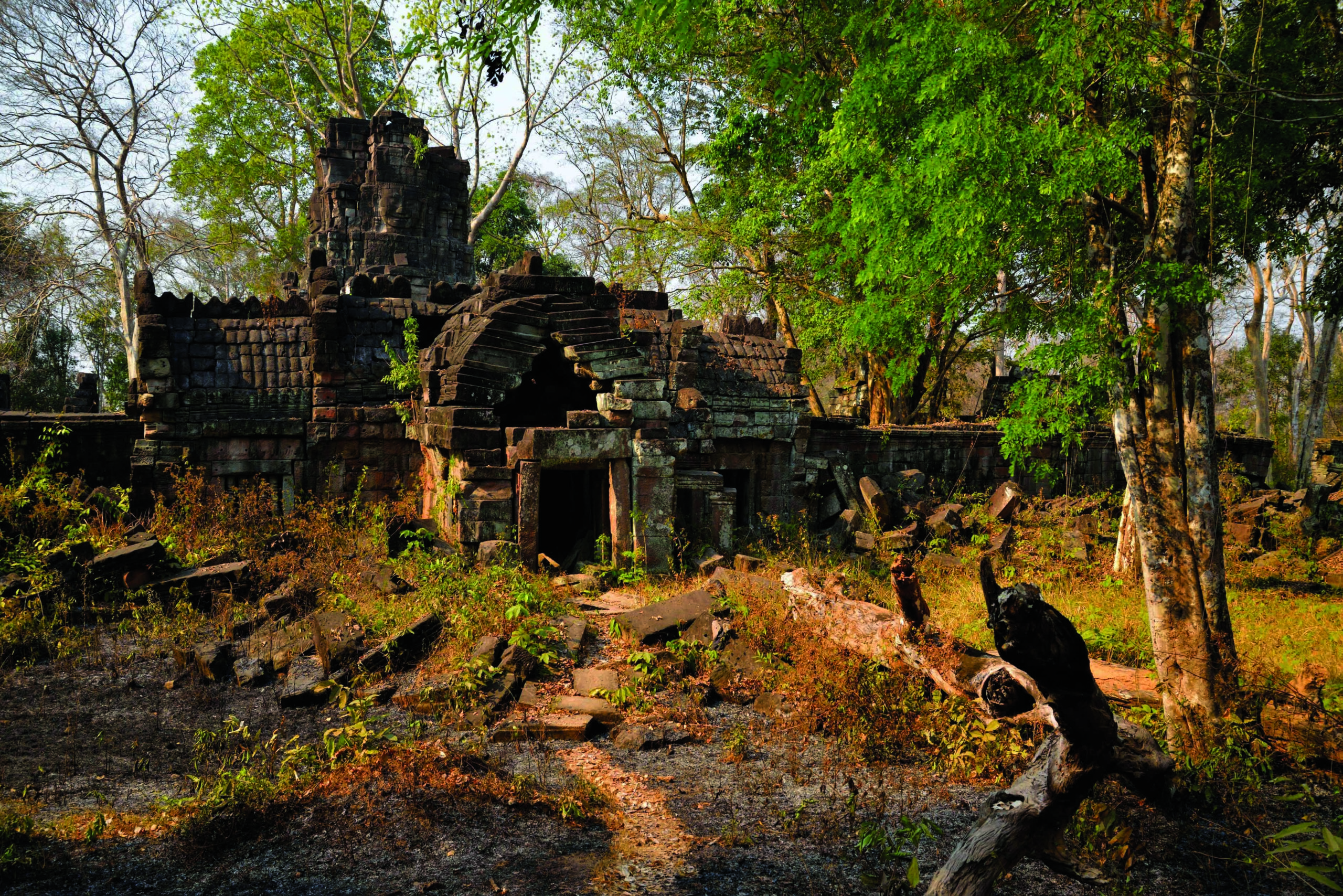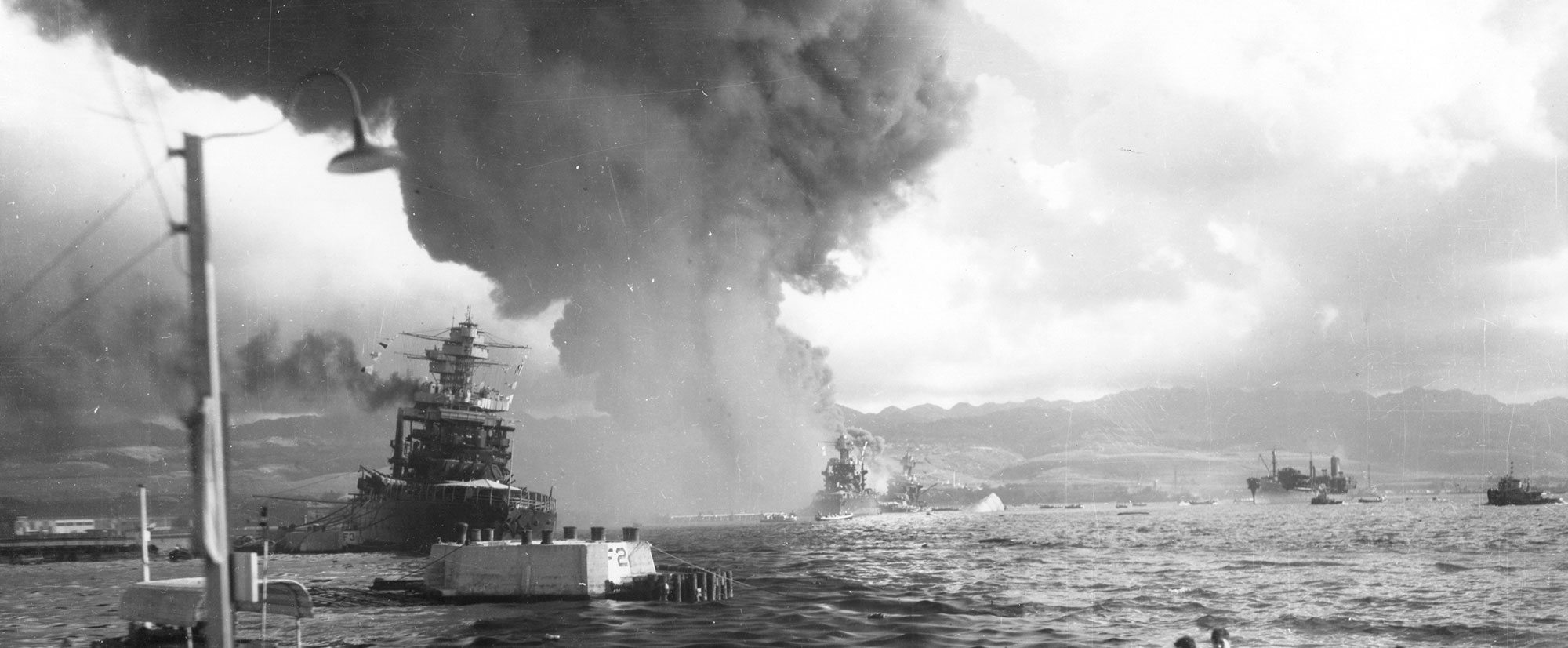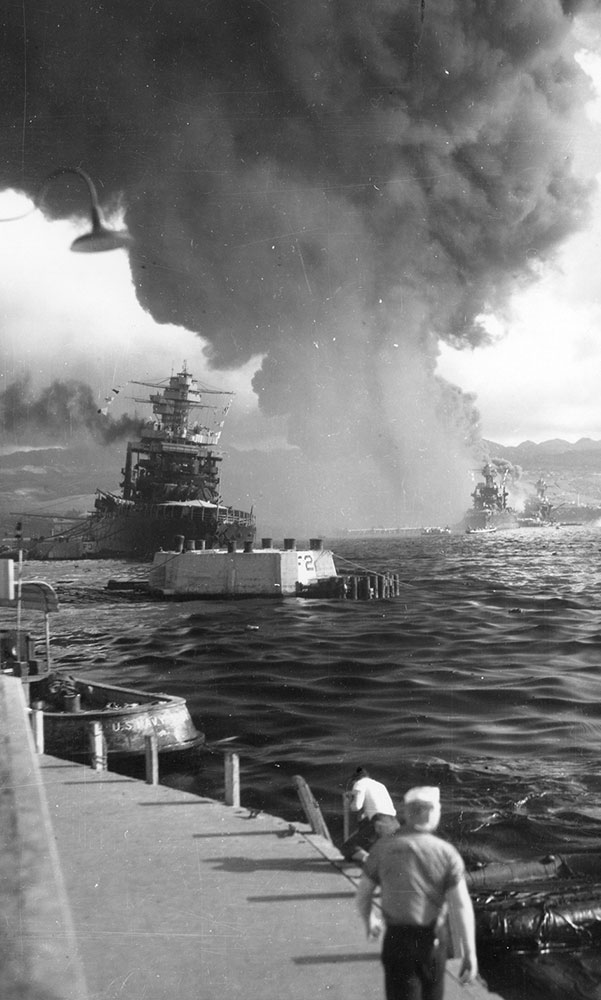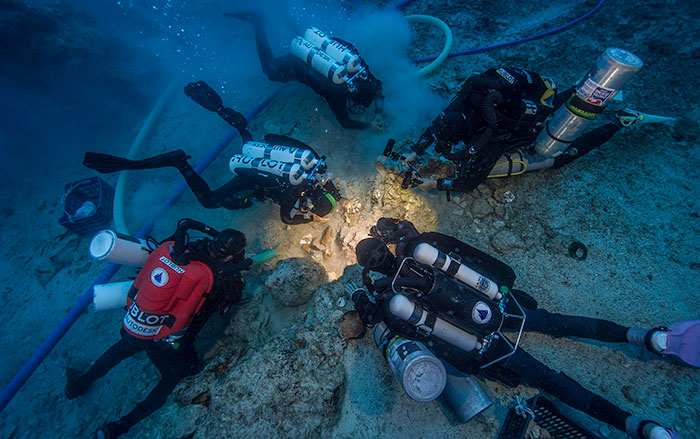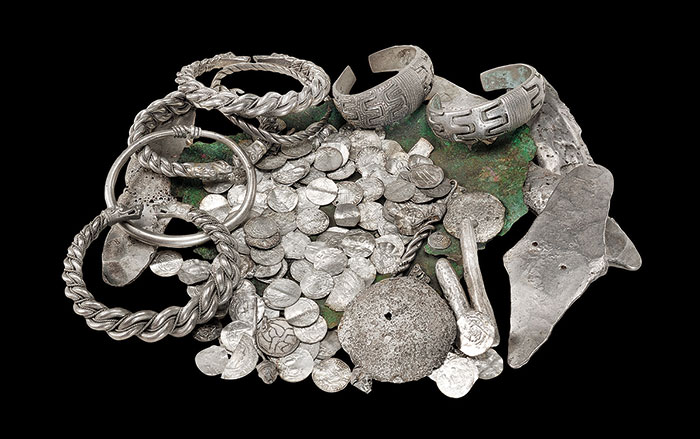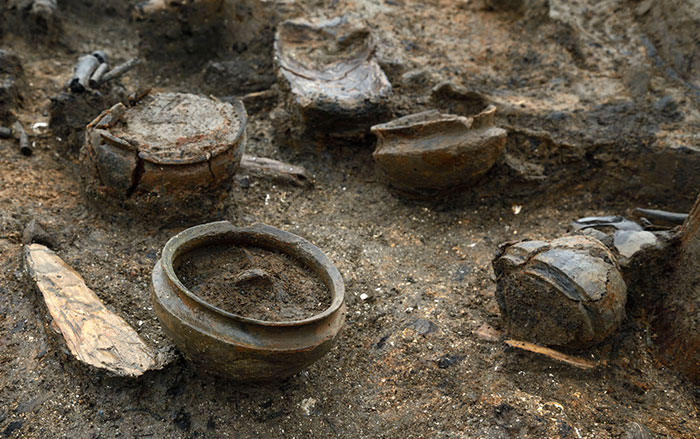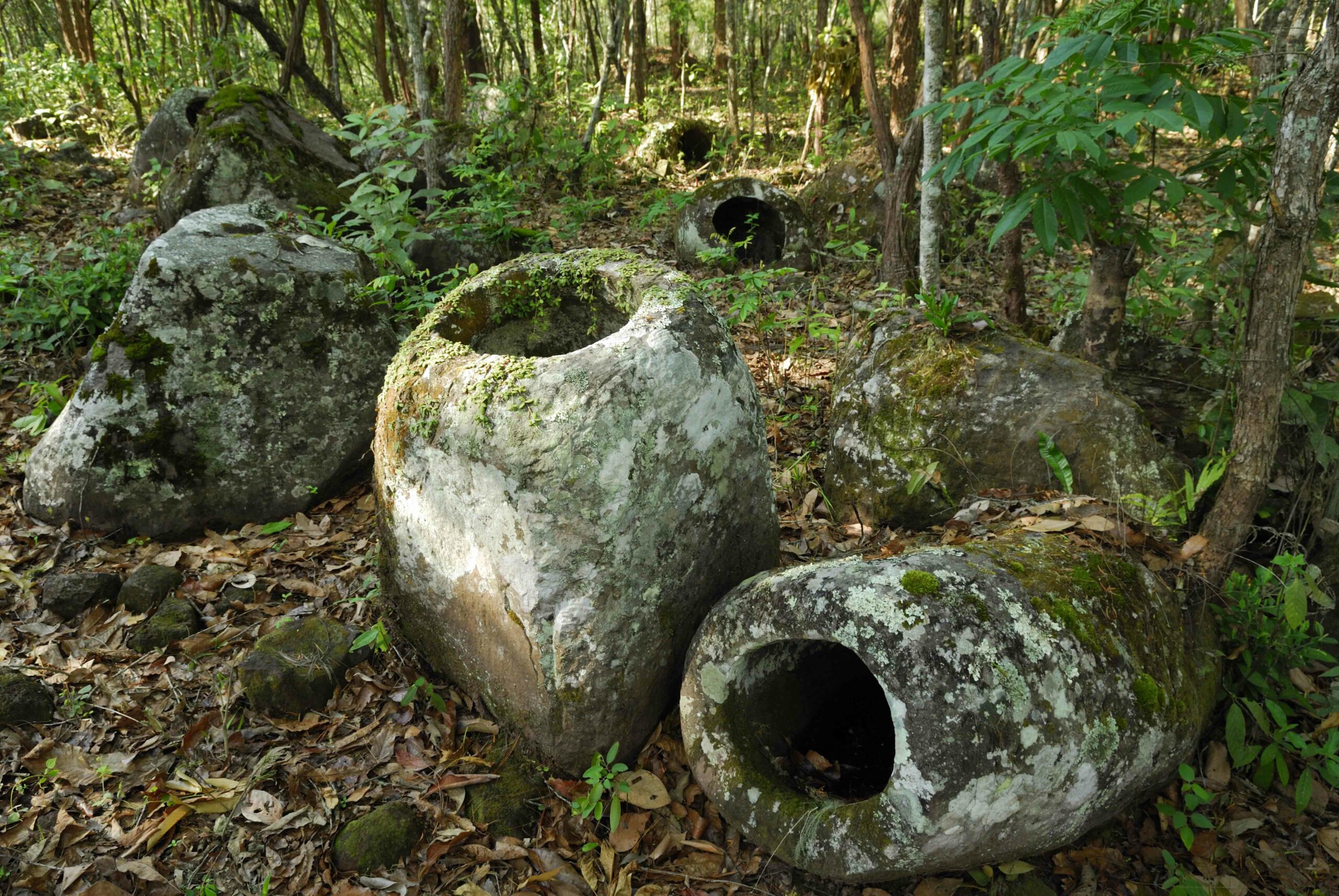Researchers in northwestern Cambodia have carried out the largest airborne laser-scanning archaeological project to date. They used lidar to survey 900 square miles of the densely forested Angkor region, revealing centuries-old cities that once belonged to the vast Khmer Empire.
The kingdom’s provincial centers turn out to have many characteristics in common with Angkor, the metropolis surrounding the iconic Angkor Wat temple. All share a checkerboard of city blocks within a central moat, enormous reservoirs and canals used for water management, and mysterious mounds and “coiled” embankments built into the earth and seen at every eleventh- and twelfth-century temple site.
Archaeologist Damian Evans had spent a decade searching for evidence of an industrial city at a site east of Angkor called Preah Khan of Kompong Svay. When he looked at the new survey unobscured by vegetation, the three-mile-by-three-mile enclosed urban grid—the largest in Southeast Asia—appeared in plain sight. “It reveals this degree of complexity—the scope and scale at which human beings adapted the environment,” he says. “That’s what lidar illuminated so beautifully in Cambodia.”
